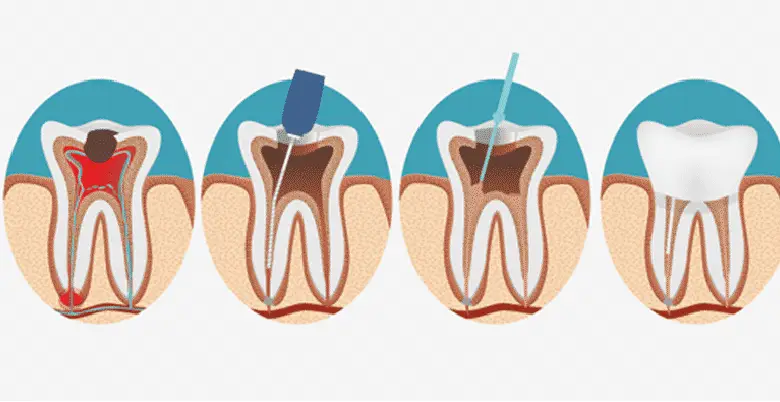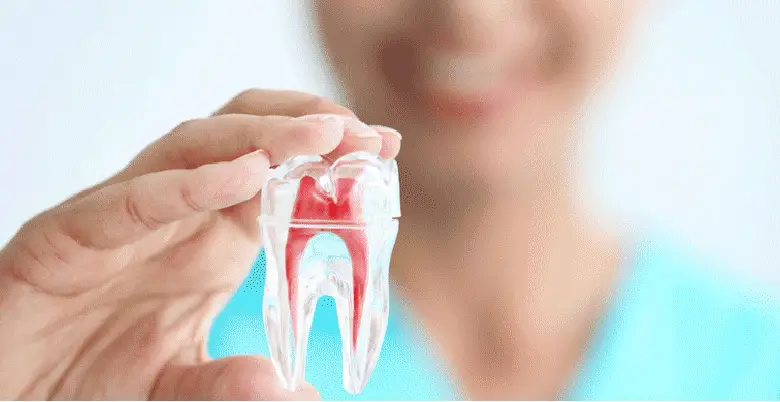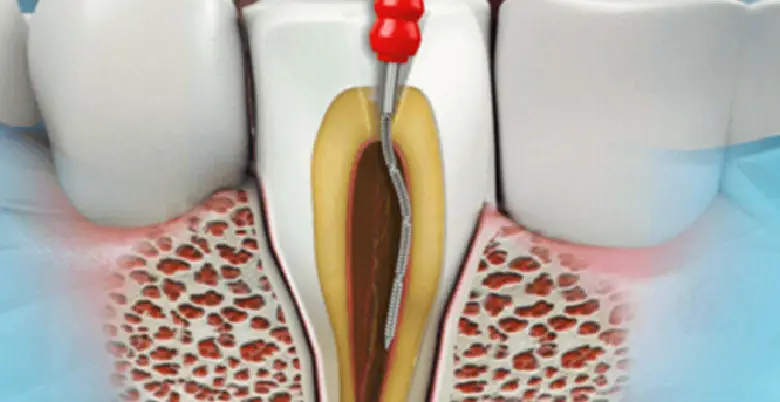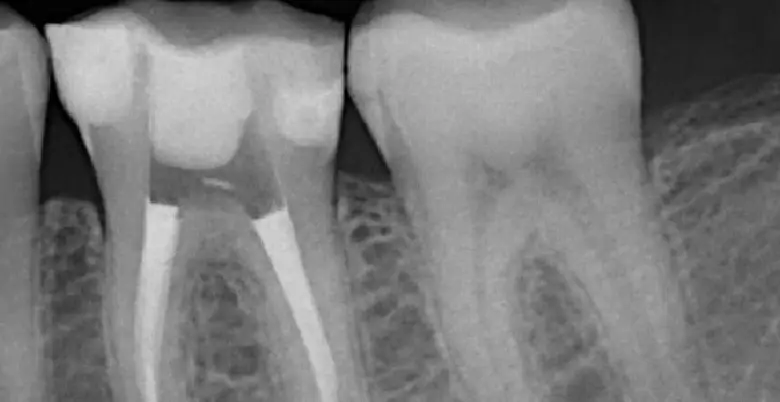Root canal treatment(RCT), also known as by another name i.e endodontic treatment. It is a dental procedure that is performed to operate on infected or damaged teeth.
It involves removing the damaged or infected part (soft tissue inside the tooth that contains nerves and blood vessels) and cleaning and sealing the inside of the tooth to prevent further infection.
Read about – Liver Transplant
During a root canal treatment, the dentist will numb the area around the tooth and create an opening in the top of the tooth to access the pulp.

They will then use special tools to remove the damaged or infected part and clean the inside of the tooth. Once the inside of the tooth is clean and free of infection, the dentist will seal the tooth with a filling or also known as crown to prevent further damage.
Root canal treatment is performed over the duration of one or two appointments, depending on the complexity of the tooth. The procedure is generally well-tolerated by patients because of anesthesia and is no more painful than a standard dental filling.
After the procedure, patients may experience some mild discomfort or sensitivity, but this can usually be managed with pain medications like zerodol sp used for tooth pain in india.
Read more : Appendix Treatment
Root canal treatment is often recommended for patients with a severely damaged or infected tooth, as it can help to preserve the tooth and prevent the need for extraction. It is important to seek prompt dental care if you are experiencing symptoms of a dental infection, such as severe tooth pain, swelling, or fever.
Root Canal Introduction
Root canal disease, also known as endodontic disease, is a condition that occurs when the soft tissue inside the tooth, known as the pulp, becomes inflamed or infected
This can be caused by a variety of factors, including deep cavities, trauma to the tooth, or gum disease.

Symptoms of Root Canal:
- Severe Toothache
- Sensitivity to hot and cold temperatures
- Swelling and tenderness in the gums
- Discoloration or darkening of tooth
- Infection on a particular tooth
Note– If left untreated, root canal disease can lead to the spread of infection to other teeth, the jawbone, and other parts of the body.
Root canal treatment is the most common and effective way to treat root canal disease.
Read also about : Gallbladder Cancer Treatment
During the procedure, the dentist will remove the damaged or infected part from inside the tooth, clean the inside of the tooth, and then seal it to prevent further infection.
In some cases, a dental crown may also be placed on the tooth to provide additional support and protection.
If you are experiencing symptoms of root canal disease, it is important to seek proper dental care from a dentist.
Medical Test for Root Canal Treatment:
- Dental X-RAY– X-rays can help to identify problems in the tooth’s root structure. They can also show the extent of any decay or damage to the tooth.

- Electric Pulp Testing– This test involves applying a small electric current to the tooth to measure the sensitivity of the pulp. If the tooth is not responding to the electric current, it may be a sign that the pulp is damaged or infected.
- Percussion Testing– The dentist may tap on the tooth with a dental instrument to check if there is any tenderness or pain, which can be a sign of an infected or damaged root.
- Thermal Testing– The dentist may use hot or cold object, such as a cold spray or a warm instrument, to test the sensitivity of the tooth. A tooth that is sensitive to temperature changes may claim that the pulp inside the tooth is damaged or infected.
Read about – Esophagus Cancer Treatment
- Periodontal Probing– The dentist may use a dental probe to measure the depth of the pocket between the tooth and the gum. A deeper pocket may indicate that there is an infection in the tooth’s root.
Root Canal Treatment
The treatment of root canal, also known as root canal therapy or endodontic treatment, involves removing the infected or damaged pulp from inside the tooth, cleaning and shaping the root canals, and filling and sealing the space to prevent further infection.
Here are the steps involved in root canal treatment:

- Local anesthesia: The first step is to numb the affected tooth and the surrounding area with local anesthesia to ensure that the patient does not feel any pain during the procedure.
- Access to pulp chamber: Once the area is numb, the dentist will create a small opening in the top of the tooth to access the pulp chamber.
- Removal of the infected or damaged Pulp: The dentist will use specialized tools to remove the damaged or infected pulp from inside the tooth and root canals.
- Cleaning and shaping: After the pulp has been removed, the dentist will clean and shape the root canals to remove any remaining bacteria.
Have a look at : T-cell Lymphomas Treatment
- Filling: Once the root canals are cleaned and shaped, the dentist will fill them with a rubber-like material called gutta-percha and seal the tooth with a temporary filling or permanent restoration, such as a crown or filling.
- Follow-up appointment: A follow-up appointment may be necessary to ensure that the tooth has healed properly and that there are no signs of further infection.
After the root canal treatment, the tooth may feel sensitive or sore for a few days. Over-the-counter pain relievers can help manage any discomfort.
Patients should also avoid biting or chewing on the treated tooth until a permanent restoration, such as a crown or filling, is placed.
It is important to maintain good oral hygiene by brushing and flossing regularly to prevent further dental problems.
Root Canal Treatment / RCT Cost in India

The cost of root canal treatment in India can vary depending on a number of factors, including the location of the dental office, the severity of the problem, the type of tooth being treated, and whether a dental crown or other amenities is necessary.
You Should also know – Ewing Sarcoma Treatment
- The cost of root canal treatment in India can vary from 2,000 to 10,000 Indian Rupees per tooth.
- This cost does not include the cost of any necessary dental amenities, such as dental crowns or fillings, which can add an additional 2,000 to 15,000 Indian Rupees or more to the total cost.
Note: Keep in mind that the cost of root canal treatment may be covered in full or in part by dental insurance.
It is important to check with your insurance provider to understand your coverage.
If you do not have dental insurance or if your insurance does not cover the full cost of treatment, there may be options for financing or payment plans through the dental office or third-party providers.